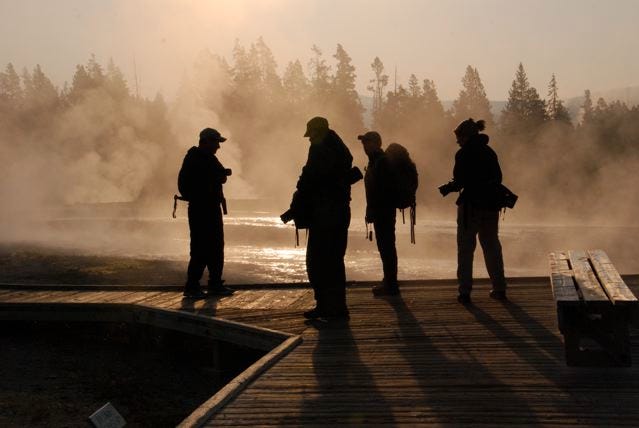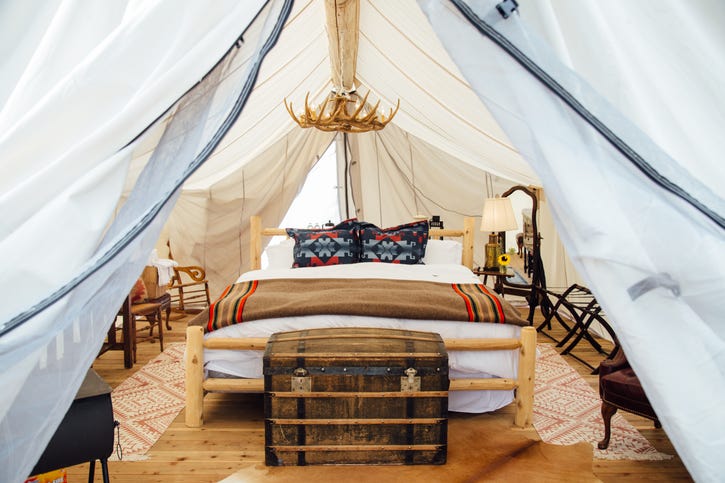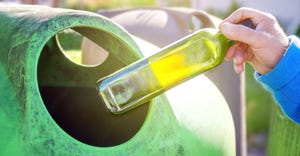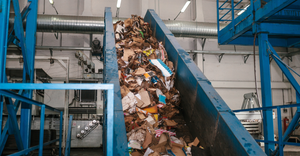Nat Hab’s Zero Waste Safari in Yellowstone Marks Industry First
For the 2019 safari, zero waste will encompass all guest-related activities that the company manages and sponsors throughout the trip.

“The typical American produces about 4.4 pounds of trash per day. That type of behavior often carries over to when people travel,” says Nick Grossman, marketing manager at Natural Habitat Adventures (Nat Hab).
In July 2019, Nat Hab, in partnership with the World Wildlife Fund (WWF), plans to lead the way in a new direction for the travel industry by operating what they deem “the world's first zero waste adventure.” The seven-day safari in Yellowstone country will include 14 travelers, and the company has set a goal of diverting 99 percent or more of all on-trip waste produced as a byproduct of Nat Hab-sponsored trip operations.
For the 2019 Yellowstone safari, zero waste will encompass all guest-related activities that the company manages and sponsors throughout the trip—from the moment a guest books through the airport transfer on the final day. At the end of the trip, according to Nat Hab, the group should be able to fit all waste produced into a single, small container.

Travelers will be expected to refuse, recycle, compost, upcycle and reuse. “We do a bit of screening to ensure that people who are on this specific departure believe in what we are doing and are also passionate about minimizing their environmental impact by minimizing the amount of waste that they produce,” says Grossman. “Our goal is first to educate our travelers and our guides on that trip about how important the first step in the zero waste cycle is, and that is to refuse potential waste whenever possible.”
While on vacation, many travelers tend to utilize convenient products, which may not be reusable or sustainable. In addition, products they have access to on the plane, in the airport, in a van transfer or the hotels may be packaged in non-sustainable materials. To succeed on this trip, Nat Hab has created a list of zero waste travel tips to help guests pack, plan and avoid waste.
Guests also receive more detailed educational information as part of the package of predeparture materials. During the trip, Nat Hab will offer zero waste kits that include reusable water bottles, mugs, cutlery, tote bags and other items. Recycling and composting will be made available in the support vehicle as well.
Nat Hab is the conservation travel partner of WWF; therefore, sustainable travel has been a foundational part of the company’s mission.
“Whether it is zero waste or becoming the world’s first carbon neutral travel company in 2007, we are taking a variety of initiatives to help support these wild places that we, as a company and as individuals, love and our travelers are passionate about,” says Grossman.
Nat Hab has been implementing initiatives to minimize waste during expeditions for several years. In 2011, the company began taking measures to reduce the use of single-use plastic bottles across all of its trips, which it eliminated by 2014. Currently, Nat Hab is nearly 70 percent straw free across all of its departures and has set a goal of being 100 percent straw free by the end of 2019.
In addition to changing its own company practices, Nat Hab wants to motivate others in the travel industry to also reduce waste. WWF hopes more companies get on board.

“We encourage the travel industry to follow Nat Hab’s lead to mitigate its impact, protect the Earth’s precious natural resources and educate travelers about how they can do their part,” said Jim Sano, World Wildlife Fund vice president of travel and conservation, in a statement.
Over the summer, one of the WWF’s food waste program coordinators joined a Nat Hab scouting trip in Yellowstone to help to identify opportunities for increased sustainability, says Grossman. WWF scientists and program experts also will advise Nat Hab throughout the next few months leading up to the zero waste trip, as well as during the trip and after, which Grossman says will help expand the initiative beyond the single pilot departure.
Nat Hab also hopes to inspire travelers beyond this single trip.
“What we are hoping is that they bring those reusable items home with them and use them following their trip and lead by example in their communities and in their family and friend networks,” says Grossman. “[We hope that] as people see them making those lifestyle changes, they will be inspired to make their own.”
About the Author
You May Also Like


